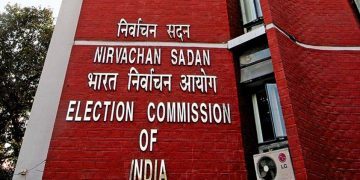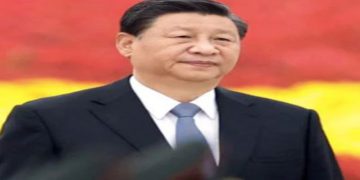EDITORIAL
No news, it seems, is good news from the Railways front. The latest is that it is facing a serious shortage of wagons for freight transport. That also is indication as to how a nation, not just the railways, is ill-equipped to make an economic transformation of a high order as is envisaged. Several years of complacence, populism and administrative ineptitude and apathy have brought about a scenario where what was once the pride of India is progressively turning into a shame of epic proportions.
It would be curious to know that Indian Railways today is not far from the post-Independence days as regards the total number of wagons it owns, as also in much else. There were a little over 2lakh wagons, carrying goods across India in the early 1950s, which progressively doubled to a level of over 4lakhs in the 80s, and reverted back to the level of 2.5lakhs in recent years. Transportation of goods increased especially in the age
of population explosion, economic hyper activity and the coming into being of a burgeoning middle class that is becoming more and more consumerist. But, fact is also that the Railways gave way to the private sector in the matter of goods/freight transport –- and even in passenger traffic. Investments in the railways failed to catch up with the growing demand, and populism – of the Mamata Banerjee kind — had the railways ailing.
Vote bank politics ensured that travel fares remained abysmally low for many years – a scenario that of late is being reversed through backdoor methods such creating a Tatkal window and charging higher rates for long-distance reserved coaches and travel. Even at this rate, the railways earns just about 30 per cent of its income from passengers and 70 per cent from freight.
Indian Railways, what was once the main profit-making enterprise of the government and cash-strapped as it is now, suffered an operational loss in the range of 300billion for the financial year ending March 2014. The fact that an enterprise of this sweep functions without a proper R&D – not to mention the namesake one that exists in Lucknow – and very little of innovations have been brought into the railways system speaks poorly of the interest successive governments have taken in this sector. Reason why India today is seeking help from China to both renovate and innovate the railways system, while till a few decades ago, China was no match for India when it came to railway network.
Today, Chinese trains run at speeds three times that of Indian trains – express trains chug here at a speed of less than 60kms, and a few super fast expresses at a speed of 130km.
With no money for proper maintenance, accidents are common occurrences. The railways has admitted as much after a recent train mishap that killed many near Bangalore: that many of the passenger coaches have outlived their normal lifespan, so much so, in this specific case, there was nothing surprising that two coaches’ wheels fell apart — while the train gained speed at the start of the journey. Lack of funds, leading to lack of investment in the sector, is making train travel more unsafe in recent times.
While the Narendra Damodardass Modi government raised people’s expectations by promising bullet trains, among other innovations, fact is also that this year’s budget has made new allocations of no more than 10,000crore – even as the railways’ earnings for the year stood at over 10,000billion. One year into the new government’s installation at the Centre, passenger amenities have shown little improvement. The railway budget raised hopes more about peripherals like Wifi and internal camera systems that cost measly sums but all the same boasted of sophistication, innovation and hi-tech additions. There is hardly any improvement in pantry services in most trains and platforms, and toilets remain ill-maintained.
Corruption that ate into the system’s veins – a la Pavan Kumar Bansal – added to the railways’ woes and allegations are that the Railway Board itself is at the apex of outright loot. Chinese technology or bullet trains may be near at hand, but redemption from the present ills, like corruption, is easier said than done.






































